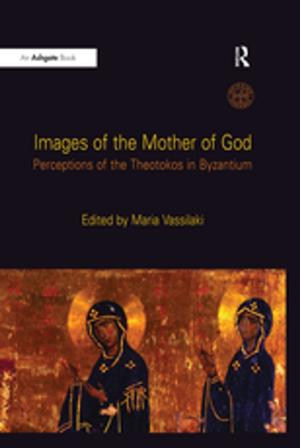Spaces of Youth
Work, Citizenship and Culture in a Global Context
Nonfiction, Social & Cultural Studies, Social Science, Sociology| Author: | David Farrugia | ISBN: | 9781317432623 |
| Publisher: | Taylor and Francis | Publication: | January 2, 2018 |
| Imprint: | Routledge | Language: | English |
| Author: | David Farrugia |
| ISBN: | 9781317432623 |
| Publisher: | Taylor and Francis |
| Publication: | January 2, 2018 |
| Imprint: | Routledge |
| Language: | English |
Contemporary young people are situated within a complex and disorienting set of social changes that are reshaping how youth is constructed, governed and experienced across the globe. Historically, it has been taken for granted that youth primarily concerns time, especially with regards to personal and social development.
In Spaces of Youth, Farrugia shows that the concept of developmental time has become a regulatory framework that is used to govern aspects of globalisation, including the formation of labour forces and the boundaries of liberal citizenship regimes. Interrogating this context, this volume explores the changes in the social organisation of youth within the spatial dimensions of work, citizenship and popular culture in a global context. Thus, Farrugia establishes a new interdisciplinary research agenda into youth and spatiality, including young people from across the global north and the global south, and which situates young people within the key dynamics of contemporary globalisation in its economic, political and cultural dimensions.
An enlightening and timely volume, Spaces of Youth is an important resource for post-graduate and post-doctoral researchers across all social scientific disciplines interested in space, youth, globalisation, work, citizenship and culture.
Contemporary young people are situated within a complex and disorienting set of social changes that are reshaping how youth is constructed, governed and experienced across the globe. Historically, it has been taken for granted that youth primarily concerns time, especially with regards to personal and social development.
In Spaces of Youth, Farrugia shows that the concept of developmental time has become a regulatory framework that is used to govern aspects of globalisation, including the formation of labour forces and the boundaries of liberal citizenship regimes. Interrogating this context, this volume explores the changes in the social organisation of youth within the spatial dimensions of work, citizenship and popular culture in a global context. Thus, Farrugia establishes a new interdisciplinary research agenda into youth and spatiality, including young people from across the global north and the global south, and which situates young people within the key dynamics of contemporary globalisation in its economic, political and cultural dimensions.
An enlightening and timely volume, Spaces of Youth is an important resource for post-graduate and post-doctoral researchers across all social scientific disciplines interested in space, youth, globalisation, work, citizenship and culture.















